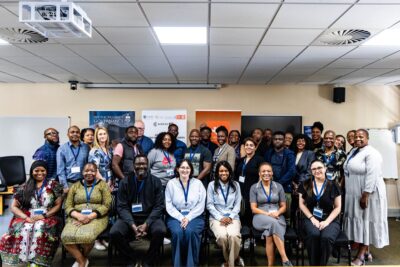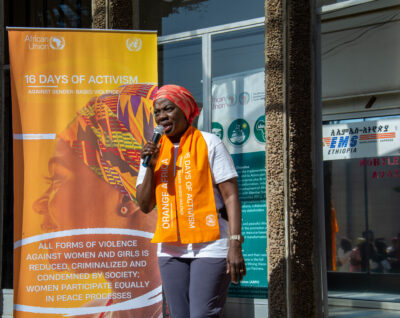In the twenty-one volume 1984 edition of the World Book Encyclopedia, a reference set designed for children, the definition for economics begins, predictably, with a scold. “Most people want more than they can afford to buy. If a family buys one thing, they may not be able to afford something else they would like.” The reading child connects their desire for this or that toy with a broader equation of refusal and control. No, you don’t get that Cabbage Patch doll; the family needs to replace the oven.
It isn’t until the fifth sentence that we find something akin to a definition: “The field of economics studies the way the things people need and want are made and brought to them.” It’s the “need and want” that is the dramaturgical key, pulling that child into an estimation quickly freighted with geopolitical consequence. The encyclopedia formats every country profile with an assessment of how hale or not the economy is. “Denmark has a thriving economy,” World Book coos. “Tonga, an economically underdeveloped country, has few industries or skilled craftworkers,” World Book reproves. “Poverty is fairly widespread in India, but a few Indians have great wealth,” World Book decides. The reader of the encyclopedia knows that a thriving country must be good at managing the equation between need and want; the underdeveloped place has likely fell sway to a mistaken disequilibrium. The history of defining economy is a history of various chiding postures.
Economy is not about money or things. Economy is the practice of constraint toward money and toward things. Economy is a synonym for denial, for constraint, for restraint. To economize is to avoid waste; to be economical is to be frugal. If this seems at odds with the bankers, financiers, CFOs, or artisans of the economy you know, then think of economy as the performance of constraint’s practice. The first time I heard a Goldman Sachs employee tell me “economics is the science of constraints” during the years I studied them, I wrote it down. The twentieth time I heard it I sighed inwardly at how much their nerdy way of controlling the world included a thorough disgust at the undisciplined.
In the wake of these meetings, I found myself taking a cab when I could have taken the subway, or buying a thirty-dollar deep dish when I could have gotten a two-dollar slice, in an effort to shake off their ascetic hauteur and immerse myself again in the consumer gluttony that rimmed my most impoverished years. When I was poor, it was not that I did not understand the science of constraints. Nobody broke needs a lesson in budgeting. Running up credit card debt was sometimes simply the only middle finger to the universe that I could manage to make. “Because the poor have fewer options,” William Julius Wilson famously wrote, “and because they lack the economic resources to fulfill their aspirations, they are forced to develop behavioral norms that diverge from mainstream areas of life, even though they still retain many of the aspirations and values of the affluent society.”
When Wilson wrote about divergent behavioral norms, he sought to reframe criminal activity among the disadvantaged as a rational choice, given the options. The word “economy” is head shaking at such high-risk divergence. Yes, a life of crime might get you cash now, but you also might go to prison later. So irrational, the economist thinks. Why not just behave right, live right, and the good will inevitably follow? Economy is first a moral assessment of whether you are behaving right for future profits. Much later is it a stylized statistical portrait playing as nonfiction. As Rey Chow has brilliantly observed: the way an outsider finds entry into “global capital’s phantasmagoric flows” is not by becoming a scientist of dollars and cents, but through performing moral superiority, through (to borrow from Chow’s language) moral self-production, moral self-expansion, and moral self-proliferation. The key to being a good economic actor isn’t the money or things you have, but the reputation for behavior that knows how to economize and when to say, “no.”
If you look to find out what social scientists say is economy’s relationship to religion, you will quickly find a pile of studies that focus on the abundance religion can make for you in your life. You will find a study that suggests that faith-based enterprises make a lot of money. You will find a study that says people who are very involved with their religion have more happiness than those with lesser involvement. You will find a study that says religion makes you more mentally and physically healthy. You will find a study that suggests that religion contributes positively to economic innovation.
Religion’s manifestation of abundance is a split conceit, an Echidna that seems sweet and fair by one slant but monstrous from another. The purported abundance religion produces is because of its special capacity to instruct constraint, which in turn makes certain metrics of economy rise. Even the most mammon-delighted prosperity preacher prescribes attendance at his financial ministries, at which (as Kate Bowler tells us) the needful parishioner learns, “If you’ll do your part, God will do His.” Particular religions feel differently about payroll. But every religion counsels on how not to be controlled by coin.
Development economics is not a disinterested party to religion’s disciplinary role. One study shows that religion has a measurable effect on developing economies when that religion includes a strong conception of hell. According to these researchers, increased belief in hell, along with a given level of church attendance, can push growth in gross domestic product (GDP) per capita up by 0.5 percent per year, compared to the average growth rate of 2 percent for all countries studied. Living in fear of the next life will make you buy fewer Cabbage Patch dolls and deep-dish pizzas, and be the obedient saver Chase Bank reminds you to be.
The point here is not that religion and economy make happy companions, but that the work of one is integral to the operation of the other. In a 2013 interview, the renowned sociologist of religion Peter Berger said that religion drives economy because religion is culture. “For most of the world culture basically means religion. Religion drives culture; culture drives social forms; social forms drive development.” For Berger, “drives” is a chipper gait. He, like the World Book Encyclopedia, sees no problem in deciding that some things are better for drive, some people are better at drive.
This is, he wagers—the economists wager—a neutral valuation. The study of religion disagrees. It is not neutral to assess capacity and find something wanting. It is the most partial position a person can take, cheering on the sidelines as Denmark thrives, and booing as Tonga misses development opportunities. Raising the image of sports spectatorship makes clear that we can revise this dynamic and choose different fan cultures, and different ideas about what being a fan is. Religion is how we navigate the aspersion economy produces. It is also—it may exactly be— how we revise just what we mean when we name what we need and what we want.













